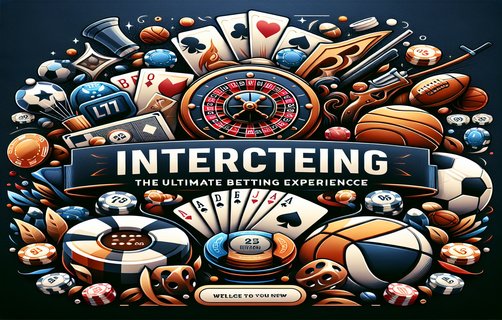The Dynamics of Gambling: A Big Data Perspective on Strategy and Behavior
In the realm of gambling, the intersection of human behavior and data analytics has unveiled profound insights into various gaming strategies and practices. This in-depth analysis leverages big data to explore features including Sic Bo, Blackjack strategies, adapting to table dynamics, the importance of patience, corner betting, reading the board, and the implications of mobile gambling laws. Each of these elements not only reflects the mathematical probabilities of the games but also the psychological aspects that influence player choices.

Sic Bo, a game of chance that relies heavily on three dice, presents a fascinating case for big data analysis. An investigation into player preferences reveals patterns in betting behaviors. Data analytics can track combinations that yield higher payouts versus those that remain more popular despite lower returns. By aggregating data from thousands of games, insights can be drawn about which bets are seen as 'safer' by players and how these perceptions shift over time.

Moving to Blackjack strategy, the application of data can enhance the understanding of card counting and optimal play strategies. Players who leverage data analytics can better predict the likelihood of each card being dealt based on previous outcomes. Through computer simulations and historical data analysis, one can calculate the potential advantage of specific actions—such as hitting, standing, or doubling down—based on a myriad of game conditions. It’s here that we notice the divide between amateur gamblers and seasoned players, with the latter utilizing data to enhance their decision-making processes.
Another element worth examining is adapting to table dynamics. Each gaming environment, whether in person or online, has its nuances. Big data analytics enables players to recognize trends in table behavior—such as the types of players frequently at the table, their betting patterns, and the overall mood. Players who are attuned to these dynamics can make strategic adjustments, such as altering their playing style in response to more aggressive or conservative players.
Patience in gambling is a timeless virtue. Data shows that players who practice patience—waiting for the right moments to bet or fold—often experience better long-term outcomes. Big data highlights the correlation between emotional control and gambling success, providing a metric for identifying seasoned gamblers who understand the psychological games involved.
Furthermore, the concept of corner betting—placing bets in designated areas of a table—can be analyzed through gameplay data. Players often gravitate towards patterns that they perceive as favorable. A detailed analysis of such bets, combined with player outcomes, can reveal whether corner betting effectively enhances win rates or simply gives players a sense of control in random outcomes.
Next is the art of reading the board. Players, particularly in games with visible cards or results, can analyze previous outcomes to predict future results. Utilizing big data, players can assess which outcomes historically lead to more favorable scenarios, thereby enhancing their chances of making informed bets based on visible trends.
Lastly, understanding mobile gambling laws is crucial in today's digital age. Data analytics reveals significant variations in gambling laws across jurisdictions. Examining these laws can help identify how they shape player participation in different regions and influence games' accessibility. It fosters a better understanding of the regulatory environment—turning data into actionable insights for both players and gaming operators.
In conclusion, the integration of big data into gambling practices is reshaping player strategies and experiences. The analytical process involves collecting vast amounts of gameplay data, validating it, and applying statistical methods to derive actionable insights. As the gambling landscape continues to evolve, those who harness the power of data will find themselves at an advantage, navigating the complexities of both strategy and behavior with newfound acuity.
